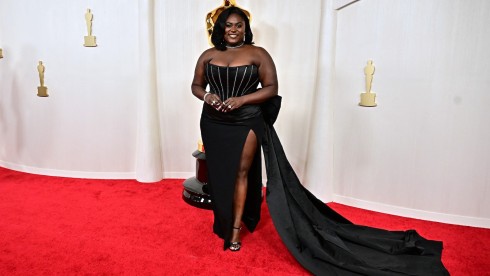A poetic tribute to Sidney Poitier.
what kind of man
was he
money-poor Bahamas boy
airlifted from the womb
a few months too soon
during Evelyn’s and Reginald’s
mad dash to Miami
to hustle tomatoes
to survive
hardly weighed any pounds
teeny enough
to rest inside
the mud-soiled
palm of Reginald the father
what kind of man
was he
likely to be dead
in two or three days so his father
readied a shoe box
for the infant funeral
but the ears of
Evelyn the mother
clanged
of colonizers and overseers
in break-dance battles with
Maroons and Lucayan people
and her ears clanged too of a runaway ghost
slouching towards Bethlehem
while sheltering in Griffin Bat Cave
on Cat Island
The same Cat Island
her child will smell and
eat with his Caribbean eyes
the first ten years of his life
if she can resurrect him like Jesus
what kind of man
was he
Mother Evelyn’s miracle
born yet again as she laid hands
on the congested pathways of Miami
her own private ghetto
knocking over the bowls
of Negro folks until a sister prophetess
struck a match with her mouth and foretold
the boy will live
and he will walk with kings
and it does not matter
that the boy’s hair
is wooly like a seaman’s cap
that the boy’s feet
are bronze like tobacco-bleached grass
that the boy’s face
is pitch-dark like a West Indian nightfall
that the boy’s lips
are full like the stomach of a pirate’s ship
that the boy’s spoken-word poetry
unloads with thick African-English creole
because the boy
Sidney
is beautiful
like Black is beautiful
like the world before Columbus
and the trans-Atlantic slave trade
and its toxic residue
might have been
beautiful
because the boy
Sidney
was begat from coin-less dirt farmers
on an island with one thousand Black souls
and two White souls
and race was not yet a savage
interruption of his imagination
thus he registered all souls as all souls
he was merely
Sidney with flour sacks as clothing
who barely ever saw
reflections of himself
because the Poitier family of two parents
and seven children
had no mirror
had no nothing
what kind of man
was he
the first movies he witnessed
were wavy and jagged renderings
of himself in a pond
the first movies he witnessed
were wavy and jagged renderings
of himself in the shattered glass of a rum bottle
the first movies he witnessed
were wavy and jagged renderings
of Bahamian insects and birds and fish
breathing in the earth with their heartbeats
what kind of man
was he
The first sound that squared his
shoulders and yanked his head to attention
was the booming noise of nature’s silence
The first sound that squared
his shoulders and yanked his head to attention
was the distressed plea
from his father
that 15-year-old Sidney go back to Miami
so that he the rebellious youngest child
would not dagger himself on that island
take care of yourself son
his father said to him
as Sidney was put on a boat
with three dollars and two years of formal schooling
the measure of a man
dripping with tears in the
mangled good-bye wave
of a parent who had done
what they could to prepare
a child for yesterday
what kind of man
was he
a teenage boy
with elastic troubles
in an outer space called Overtown
Miami’s version of the barbed wire of racism
coloreds-only signs
as poisonous nooses hung tightly around the possibilities
of a people
they did not know you were
an under-educated man-child
who had never been told
what was impossible
they did not know you were
an under-educated man-child
unwilling to gash and stab
your own flesh with that barbed wire
that is why you fled Miami
for Harlem New York City
the land of Southern
and West Indian fugitives
the land of Marcus Garvey
and I-too-sing-America
blues and bebop revolutions
what kind of man
was he
if there was any life for you
your hands would have to make
that life happen
hands that washed dishes
became the hands banging
on the door of The American
Negro Theatre
became the trembling hands wrestling
with the words of a script
be an actor or be a dishwasher
a newspaper ad had
dry-cemented a seed that became
the rose that busted through concrete
those hands washed more dishes
but those hands were also held by an aging Jewish
co-worker who decided to help
you conquer reading
night after night after work
those hands touched and grabbed
syllables
those hands funneled and fed
sentences
those hands retrieved and embraced
new meanings
those hands raised the banner on a life-long
unity with Harry Belafonte
and those hands spun the knob
of a radio so that you could
learn how to speak
as a Shakespearean actor might speak
as Paul Robeson or Spencer Tracy might speak
as kings and presidents might speak
as Frederick Douglass might speak
after learning how to read as a slave
your freedom was in reading
your freedom was in speaking
your freedom was in acting
the urgency like sticks of lit dynamite
inside your membrane
I have to learn to read
to articulate me as a human being
what kind of man
was he
transporter of a nation
of millions on his watch
no eyes bugging out like a broken-back minstrel
no lips quivering like a terrified sambo
he the defiant one
with a patch of blue to garbage can his rage
the martin luther king, jr. of American movies
Who I am is my father’s son
I will scrub my knees with Porgy’s shame
I will be a purple lily in the field of daisies
but I will also be a raisin
in the sun trolling like an endless road
I will sledgehammer my Paris blues
I will shape-shift my skin like sand
and slap a White man back
with such force it will echo through galaxies
from Chicago to Nigeria
to Brixton
a slap so dope and layered by trauma ropes
that when I die
they will say
this is evidence of things not seen
that I was not your Negro
nor your Uncle Tom
they call me Mister Tibbs
I Sir Sidney Poitier
what kind of man
was he
I am the me
I choose to be













